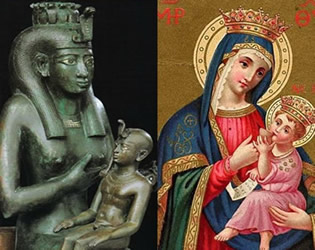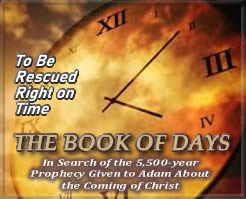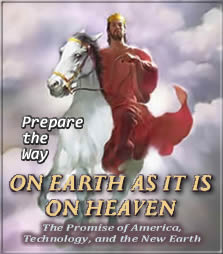Misconception #37
Jesus Was Born on December 25th
It really is the most wonderful time of the year: Christmas. I love everything having to do with the theme and message of the yuletide season. But what I love most about Christmas is that it’s the one time of the year I feel normal—as a Christian, I mean. It’s the one time of year that, wherever I go, I’m surrounded by what’s most important to me, what fills my heart with the greatest happiness.
Now, I know as Christians we have our Sundays to celebrate the Lord’s Day, and we’ve got Easter Sunday to celebrate the Lord’s resurrection; but there’s one thing that Christmastime has that Sundays or Easters don’t have. And, no, I’m not talking about the presents, or the Christmas tree, or the decorations, or the family gatherings, or the food. What Christmas has that no other Christian celebration has: Christmas carols—carols everywhere you go, carols for weeks on end.
Why is that so special?
Well, think about it: When you go to church, you hear songs that talk about God and Jesus, and they remind you of why you’re a Christian; and that’s a wonderful thing. The same thing happens on Easter Sunday. The only letdown is, when you leave church and return to the so-called “real world,” you’re right back to business as usual: The song has faded.
Not at Christmastime, though; then, every day, all day, for weeks at a time, the song continues.
Now, I’m not referring to songs about roasting chestnuts on an open fire, or riding in a one-horse open sleigh, or even Santa coming to town. That’s all great, up to a point, of course. What I’m talking about—the thing that makes me feel, as I say, normal all Christmas long—are the songs that talk about the Birth of Christ. Those wondrous lyrics that light my soul on fire in ways that no sermon or book can do. I think you know the ones I’m talking about:
Hark the herald angels sing; glory to the newborn King! Peace on Earth and mercy mild; God and sinners reconciled.
And:
Joy to the World, the Lord has come; Let Earth receive her King!
And finally, my favorite:
Mary, did you know that your baby boy would one day walk on water? Mary, did you know that your baby boy would save our sons and daughters?
Did you know that your baby boy has walked where angels trod? And when you kissed your little baby, you’ve kissed the face of God?
Story Continues Below
Says Richard Price—the founder and CEO of Academia.edu—on his podcast In Depth With Academia:
Fish Tales (From the Belly of the Whale): Fifty of the Greatest Misconceptions Ever Blamed on The Bible is:
To hear Price’s book review of Fish Tales (From the Belly of the Whale), CLICK HERE.
To hear Kent and Zen Garcia talk about correcting biblical misconceptions, from September 9th, 2021, CLICK BELOW.
Story Continues From Above
So, you see, that’s why Christmas is the one time of year I feel normal. It’s also why I must beg your indulgence when I’m forced to talk about not only the Birth of Christ itself but also when that birth occurred. I say that because, as anyone reading these essays knows, the only thing I love as much as Christmas is uncovering truth that’s been obscured by human traditions, to demonstrate to a skeptical world that The Bible can be trusted. So whatever you do, please don’t misinterpret the following discourse as an attack on what’s certainly our most beloved holiday—mine included.
My mission is two-fold: First, I want to demonstrate that what the Scriptures say about the Birth of Christ are valid and therefore capable of standing up to any form of scrutiny. Second, I want to peel away any useless claptrap that even the most naïve of Christmas lovers has to admit has distorted the true meaning of this special holiday.
As usual, let’s begin with what most traditions say about Christmas.
As the story goes, there once was a couple of wandering Jews—Joseph and Mary, by name—and as it so happened, Mary had conceived a child in a most unusual way, which is to say, without the aid of normal matrimonial procedure. Then, because winter was taking hold around them as the time drew near for Mary to give birth to their special baby, the couple was desperate to find a suitable place of refuge. Just in the nick of time, though, they found a cozy manger in Bethlehem, where Mary gave birth to Jesus, and where the Three Wise Men, guided by that famous Star, came to deliver their gifts of gold, frankincense, and myrrh.
Pretty cool story, huh? Unfortunately, the story as it stands has a number of problems in the telling of it.
But mind you, I won’t be heard to say there’s a problem with the facts of the virgin birth, or the divinity of the Christ Child, or the divine guidance of the Three Wise Men. No, that’s not something I’d ever disagree with. What I will disagree with is the idea that anything in Scripture requires that these events had to occur on December 25th. Even more disagreeable, anyone who insists they’re required is actually playing into the hands of the very ones who are constantly trying to destroy our confidence in the credibility of The Bible.
After all, we’re not just talking about trying to convince the unconvinced about what the Scriptures have to say about Christmas. What about all the children who are taught to believe what the Christmas story is said to convey? How do you feel when they start asking questions about the glaring contradictions in regard to the events as they supposedly occurred? Do you insist they believe in whatever you tell them simply because you believe that’s how the story went? Persist in that sort of logic, and you run the risk of their no longer believing anything you tell them about The Bible.
So, instead of continuing to ignore the many discrepancies in the Christmas story, why not use the brain God gave us to ferret out the real truth and disregard the human traditions that Jesus Himself warned us about? As C.S. Lewis explained: When getting at the true meaning of Scripture, we need never overreact by “throwing the baby out with the bathwater.” Instead of hiding our heads in the sand—or in this case, the snow—whenever we encounter a distortion of truth, let’s be “wise as serpents.” Otherwise, not only will our children be worse off for it but so will all mankind.







